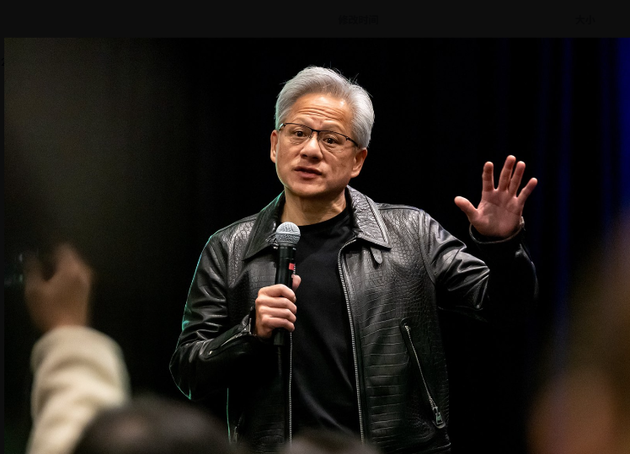
Jensen Huang Photo/VCG
Jensen Huang, CEO of U.S. tech giant Nvidia, announced on July 15 in Beijing that the company's H20 chips will soon be available in the Chinese market as the U.S. government has approved for the company filing licenses to start shipping H20s to China.
Zhang Huijuan, a senior analyst at Yufei Research Institute, noted, "The resumption of H20 sales can stabilize major clients like cloud computing companies and prevent further market share loss. Additionally, the newly launched RTX PRO GPU, marketed as 'ideal for building digital twin AI for smart factories and logistics,' allows NVIDIA to avoid sensitive high-computing training scenarios while entering China's blue ocean market for industrial digital transformation. This positioning is precise."
Chen Jia, an independent international strategy researcher, told National Business Daily (NBD) that "besides NVIDIA, several other giants have resumed operations in China this month. This indicates an improvement in the external environment for China's technology industry chain."
It's noted that Jensen Huang has made significant efforts to restore H20 sales to China. In Washington D.C., Huang met with policymakers to reiterate NVIDIA's commitment to supporting job creation, strengthening US AI infrastructure and manufacturing, and maintaining U.S. leadership in AI.
In China, Huang met with government and industry figures to discuss how AI can boost productivity and expand opportunities. These discussions highlighted how researchers worldwide are advancing safe and reliable AI for the benefit of all humanity.
Huang's extensive travel between the U.S. and China underscores NVIDIA's reluctance to lose the massive Chinese market.

File photo/ Zheng Yuhang (NBD)
On April 9, NVIDIA was notified by the U.S. government that H20 product exports to the Chinese market would require a license. This regulation led to reduced demand for H20, costing NVIDIA $4.5 billion in the first quarter of fiscal year 2026 due to inventory buildup and purchase commitments. Before the new export license requirements, H20 product sales in the first quarter of fiscal year 2026 were $4.6 billion. NVIDIA also had $2.5 billion in undeliverable H20 orders that quarter.
In essence, the H20 "ban" resulted in significant financial losses for NVIDIA. Furthermore, NVIDIA's sales through other channels were also restricted.
Wang Lingfeng, a senior analyst at Jiwei Consulting, stated, "As relevant countries tighten controls on GPU sales through other channels, NVIDIA urgently needs to salvage its market share in China through legal and compliant channels."
Chen Jia pointed out that "the resumption of NVIDIA H20 sales is actually quite logical. From a corporate strategy perspective, NVIDIA's stock price has been on a rollercoaster this year, fluctuating significantly around the so-called 'reciprocal tariffs' and at one point becoming a source of risk for U.S. stocks. The current situation also forces Jensen Huang to accelerate NVIDIA's strategic growth expectations and focus on the Chinese market."
From a capital market perspective, after NVIDIA announced the resumption of H20 sales to the Chinese market, its stock price briefly topped $168, indicating that the sale of NVIDIA's flagship graphics and computing cards in China aligns with market expectations and serves the long-term interests of all parties.
"Of course, this is just the first step. For NVIDIA itself, to maintain its current revenue balance and profit growth and achieve its '400 billion dollar' sales target in six years, it must fully leverage the supporting role of the Chinese market; otherwise, global investors will not approve," Chen Jia concluded.


 川公网安备 51019002001991号
川公网安备 51019002001991号





